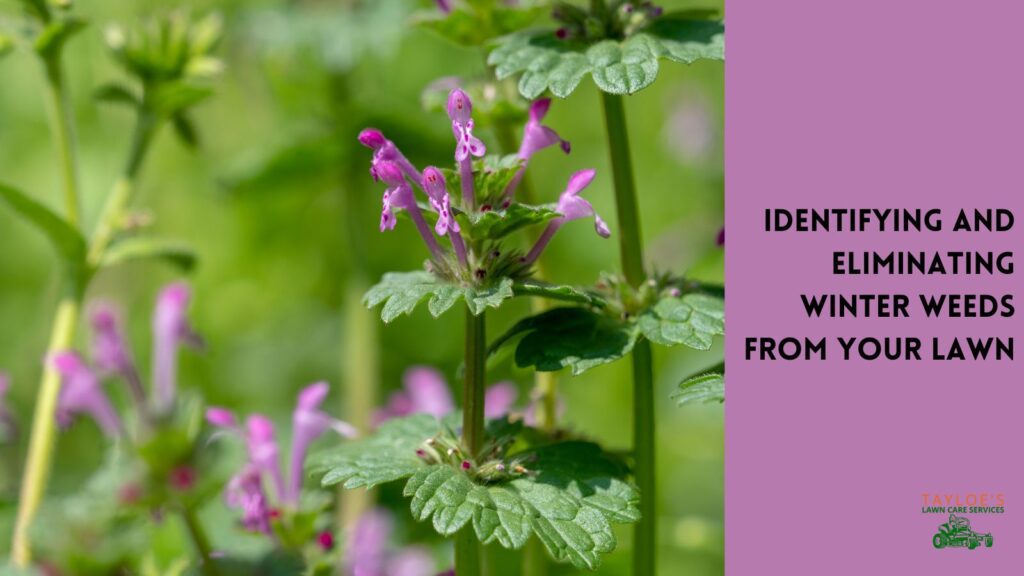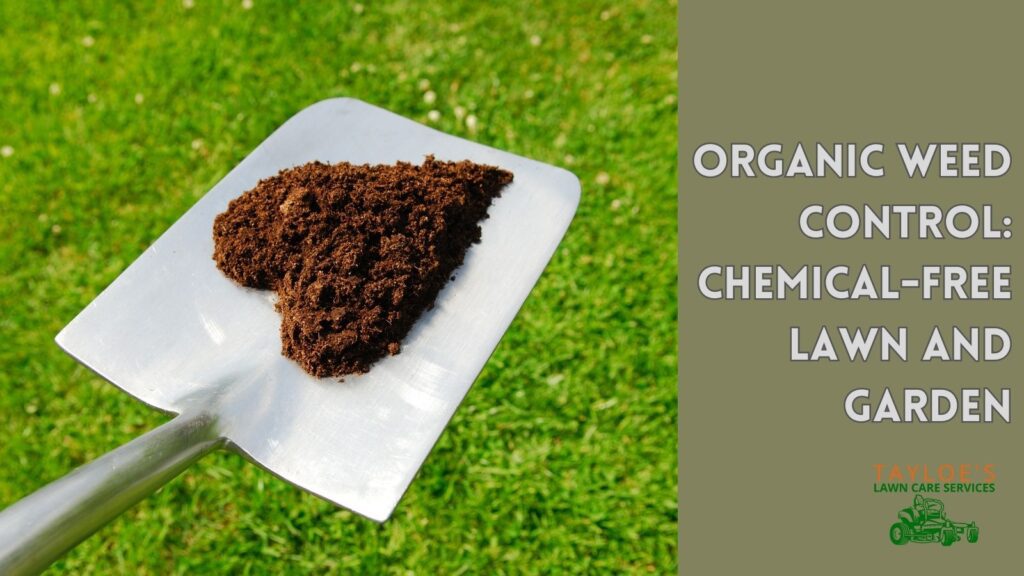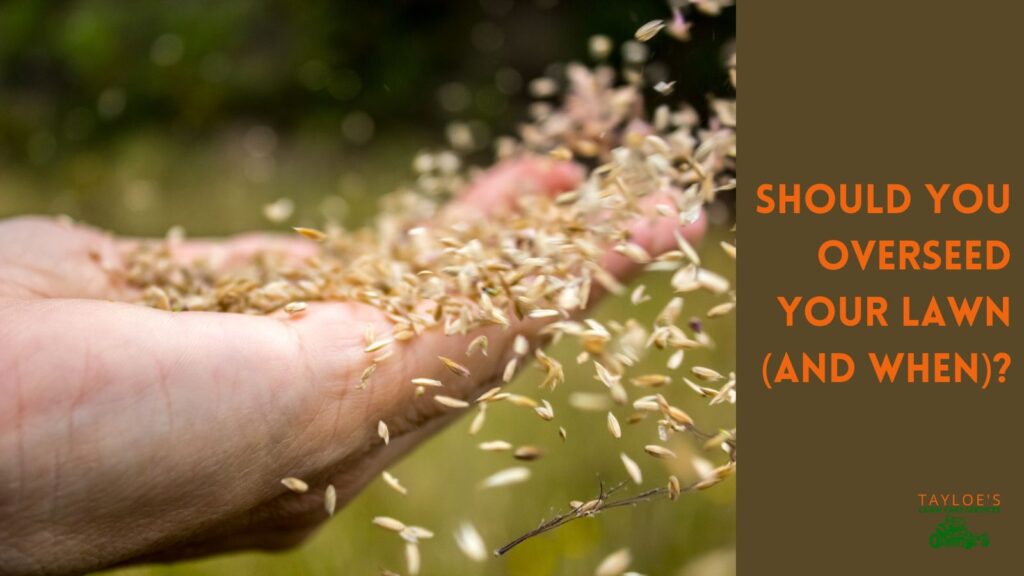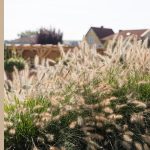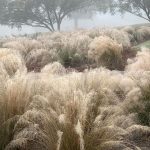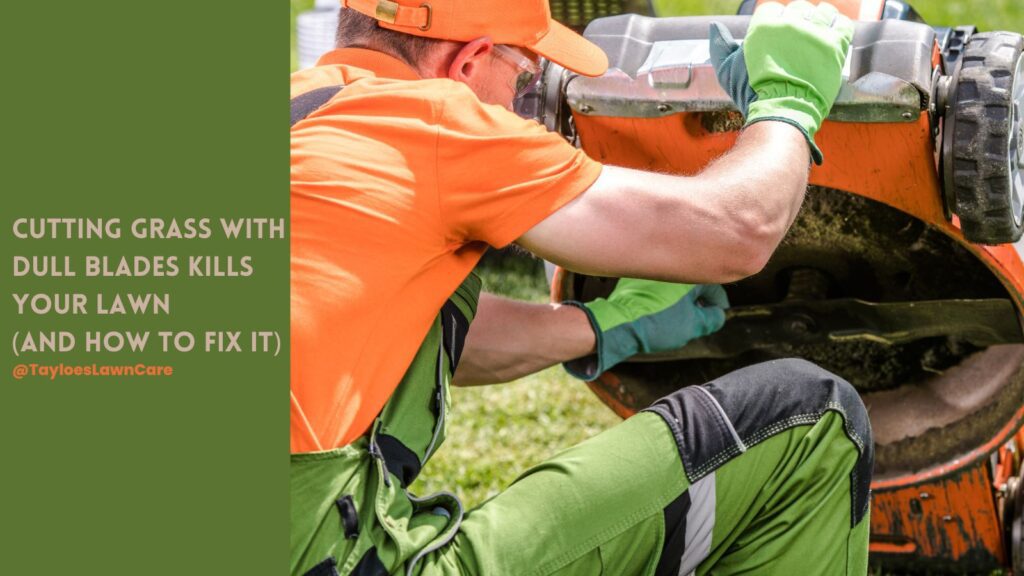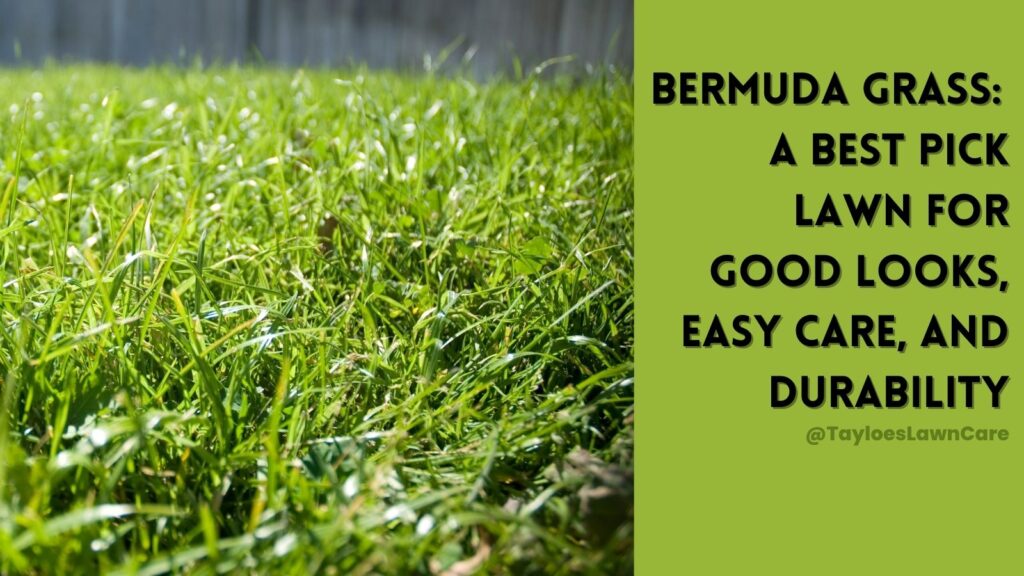Last Updated on: 9th May 2024, 08:07 am
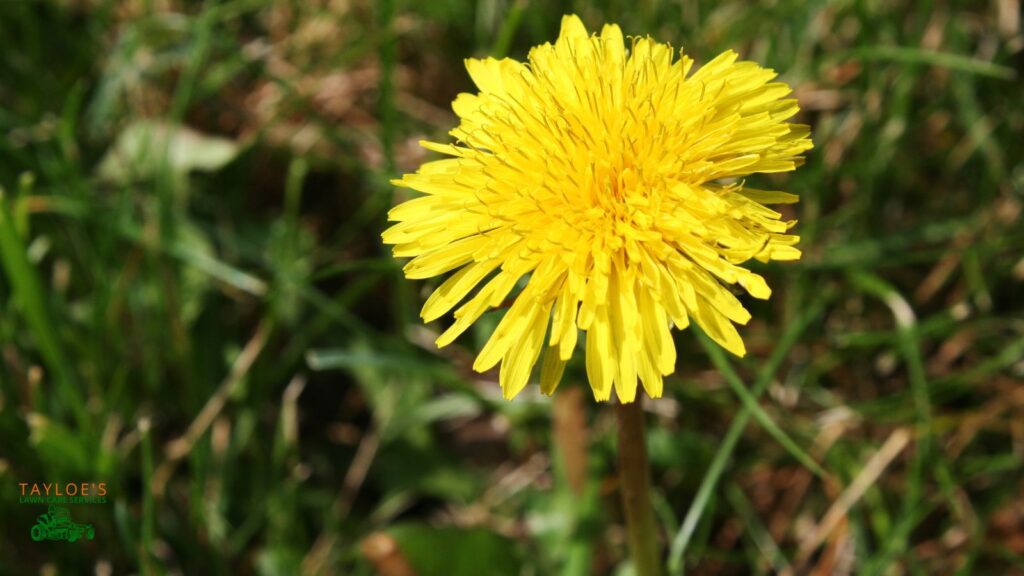
Winter weeds thrive in eastern NC – here’s what you can do.
As the leaves turn and the winter chill spreads across northeastern North Carolina, many homeowners enjoy a break from the regular upkeep their lawns demand in the warmer months. However, vigilance is vital even during the cold season, as it’s prime time for winter weeds to invade and establish a stronghold in your lawn.
These unwelcome guests can detract from the beauty of your winter landscape. They also threaten the health and readiness of your lawn for the coming spring.
At Tayloe’s Lawn Care Services, we understand the unique challenges these weeds present. In this blog, we’ll look into:
- The typical winter weeds of our region
- How they can impact your lawn
- The proactive steps to help prevent winter weeds from taking over.
Frequent Winter Weeds in Eastern North Carolina
Northeastern North Carolina’s lawns are susceptible to several winter weeds. Each has its survival strategies and ways of spreading.
Understanding these weeds is the first step toward effective control. Here are some of the most common culprits:
- Annual Bluegrass (Poa annua): A grassy weed known for its fine texture and light green color, thriving in overwatered and compacted soil.
- Chickweed (Stellaria media) is a low-growing plant with small, egg-shaped leaves and tiny, star-shaped white flowers. It often forms dense mats.
- Henbit (Lamium amplexicaule): Recognizable by its purple flowers and scalloped leaves, it competes with grass for nutrients and space.
- Common Dandelion (Taraxacum officinale): Known for its deep taproots and yellow flowers, the dandelion stays hardy through winter.
- Crabgrass (Digitaria spp.): Often associated with warmer months, but its seeds can germinate in late winter, quickly dominating lawns.
- Broadleaf Plantain (Plantago major): Features broad, flat leaves and thrives in compacted soils, common in high-traffic areas.
- Clover (Trifolium spp.): This three-leaf weed often indicates nitrogen-deficient soil and can persist through winter.
- Wild Garlic (Allium vineale): Has a strong garlic scent when crushed and features grass-like leaves.
- Thistle (Cirsium spp.): With its spiny leaves, this weed can spread rapidly and be difficult to control.
- Dock (Rumex spp.): Characterized by large, broad leaves, it can be challenging to eradicate once established.
- Speedwell (Veronica spp.): A low-growing weed with tiny flowers spreads quickly across lawns.
Each of these weeds presents unique challenges and requires specific management strategies. It’s so frustrating to see dormant grass when these aggressively take over.
Prevention Strategies for Winter Weeds
The old advice about how “an ounce of prevention is worth a pound of cure” is very true in lawn care, particularly with winter weeds.
Here are strategic measures you can implement to prevent the germination and growth of these seasonal intruders:
- Pre-Emergent Herbicides: Applying these before the weeds germinate can dramatically reduce the weed burden. Timing is critical; for northeastern NC, applying pre-emergent herbicides at the right times throughout the year can prevent winter weeds from establishing.
- Proper Lawn Maintenance: Healthy, dense grass can outcompete weeds. Regular feeding, appropriate mowing, and aeration can strengthen your lawn, making it less hospitable to weeds.
- Watering Wisely: Overwatering can encourage the growth of certain weeds, like annual bluegrass, for instance. So refrain from watering your lawn during the winter. It’s generally not necessary.
- Soil Testing and Correction: A balanced soil pH and adequate fertility, as indicated by a soil test, can promote lawn health. Adjusting the soil based on the test’s recommendations can help your grass outcompete winter weeds.
These strategies can minimize the need for more aggressive weed control measures later. By taking these proactive steps, you’re not just preventing winter weeds but also promoting a resilient lawn that can thrive in all seasons.
Control and Management
Some resilient winter weeds may still emerge even with the best preventive measures. Here’s how to tackle them effectively:
- Manual Removal: Hand-pulling weeds can be adequate for small infestations, especially if done before they set seed. Ensure you remove the root system to prevent regrowth.
- Post-Emergent Herbicides: For more extensive problems, post-emergent herbicides targeted at specific winter weeds can do the trick. It’s crucial to select the proper herbicide for the weed species and to follow the manufacturer’s instructions regarding application conditions and timing.
- Organic Options: For those seeking eco-friendly solutions, corn gluten meal can be an organic pre-emergent herbicide, and vinegar-based products may work as post-emergent herbicides. However, their effectiveness can be variable and may require multiple applications.
- Professional Lawn Care Services: Sometimes, the best action is to consult with or hire a professional. Pros have the expertise to identify, treat, and manage weed issues in a manner tailored to your specific lawn and its conditions.
A combination of these methods can effectively manage winter weeds. Remember, consistency in weed control, alongside good lawn care practices, will lead to the best results. With a bit of effort during the off-season, you can maintain a lawn that’s beautiful, healthy, and ready for spring’s resurgence.
Maintenance Tips for a Healthy Lawn
Maintaining a healthy lawn throughout the winter months is essential to prevent the emergence of weeds when spring arrives. Here are some maintenance tips that can help keep your lawn in top condition:
- Regular Mowing: Even during the winter, continue to mow the lawn as needed to keep it at an ideal height, which will discourage weed germination and growth.
- Fertilization: Apply the right kind of fertilizer at the right time. For example, late fall or early winter feeding can help strengthen your grass roots.
- Watering: If the winter is dry, occasional watering may be necessary. However, be careful not to overwater, as sogginess can promote weed growth.
- Overseeding: Overseeding with the appropriate type of grass in the fall can help create a dense turf that will outcompete weeds.
- Monitoring: Monitor your lawn for signs of weed problems or diseases. Early detection makes control much more manageable.
These tips can significantly reduce the odds of winter weeds taking over your lawn. Consistent care throughout the year is the best defense against these pesky invaders. Remember, the goal is to fight weeds and foster an environment where grass can thrive and naturally resist weed infestations.
The Takeaway: Stop Winter Weeds in Their Tracks
As we’ve explored, winter weeds can be a silent adversary to the health and beauty of your lawn in northeastern North Carolina. While they may seem dormant, they are actively undermining the vibrancy of your turf. However, with the proper information and strategies, you can take control and ensure your lawn remains a lush and inviting space even during the cooler months.
Remember, prevention is the cornerstone of effective weed management. Applying pre-emergent herbicides at the correct time, maintaining proper lawn care practices, and being vigilant about your lawn’s health can minimize the impact of winter weeds.
If winter weeds emerge, timely action with manual removal, post-emergent herbicides, or professional services will be your best line of defense. Your efforts in the winter will pave the way for a beautiful, robust lawn in the spring and summer.
At Tayloe’s Lawn Care Services, we are committed to helping you achieve and maintain a lawn you can be proud of year-round. If you have any general concerns about winter weeds or lawn care, do not hesitate to reach out to us for professional advice and services. We are glad to work with you to keep your lawn at its best, no matter the season. Have questions? Need our help? Call or text us at 252.287.3376.
Author Profile

- Randy Tayloe is the COO of Tayloe's Lawn Care Service, LLC. He is a certified custom applicator, recognized by the North Carolina Department of Agriculture Pesticide Division. A native of Bertie County, NC, and graduate of Bertie High School, he wants to beautify his home county - one yard at a time.
Latest entries
 GardeningApril 1, 2025Fountain grasses add colorful foliage and movement
GardeningApril 1, 2025Fountain grasses add colorful foliage and movement GardeningMarch 21, 2025White cloud muhly grass growing guide
GardeningMarch 21, 2025White cloud muhly grass growing guide Lawn CareFebruary 25, 2025Should I mow every week?
Lawn CareFebruary 25, 2025Should I mow every week? Lawn CareFebruary 18, 202515 Simple early spring lawn care tips
Lawn CareFebruary 18, 202515 Simple early spring lawn care tips

